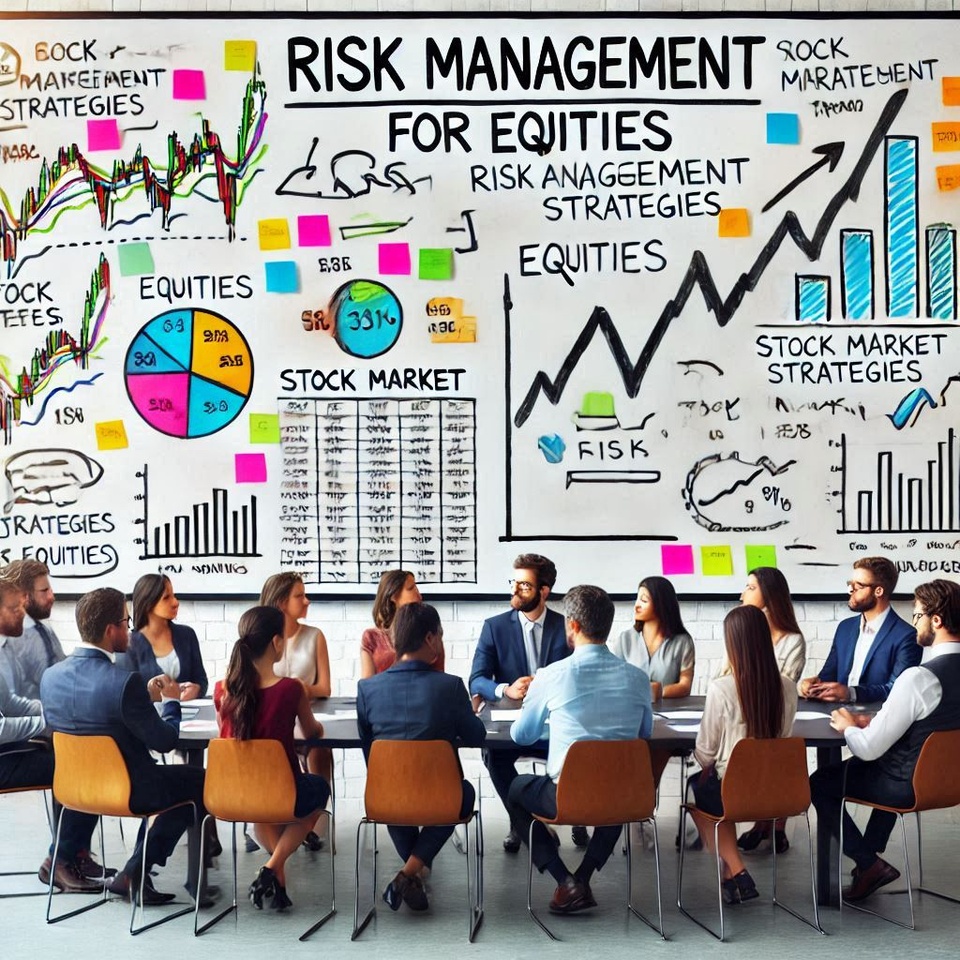#feiertagschallenge
#moneymanagement 💸💸💸
"The whole secret of stock market success is to lose as little as possible when you're wrong."
A good idea from @christian which I like to use as an opportunity to combine knowledge contributions with a good cause.
All GQ Coins from this post, including all GQ Coins that I hold as of 31.12.2024, will be transferred to a randomly selected community member who has donated to a recognized charity in December 2024.
Legal recourse is excluded. The random principle applies - one of the donors wins! There will be a post from me after the end of the challenge, where everyone who has donated something can comment on it. One of these users / comments will then be selected at random. As soon as the donation is documented by a screenshot, I will transfer all my GQ Coins to the randomly selected donor.
Those of you who donate regularly anyway can be rewarded in this way, as well as those who may be motivated to donate.
But now to the contentAfter the rally of the last few weeks, I would like to take another look at a topic that I wrote a post about 2 years ago. It's about risk management, in particular one part of it, the money management.
What will you read below?
1. what are risks?
2. what is money management?
3. money management using an example
4. money management and you
5. conclusion

In my more than 25 years on the stock market, money management was and is the "key to success" for me in order to sustainably limit losses in the event of wrong decisions.
Investing in the stock market involves risks. But don't worry, we have control over some of them. Money management is your best friend. It helps you to limit losses and protect your profits.
Imagine you're building a house. You plan carefully, set a budget and insure it against damage. It's similar on the stock market. Money management is your blueprint that ensures that your "house" - your portfolio - remains stable, even when it storms.
In a figurative sense, money management can be thought of as an insurance deductible. With this deductible, your risk is limited and calculable.
1 What are risks?
There are essentially two types of risk:
Risks that we cannot influencesuch as the general market environment, political events such as the war in Ukraine, or the interest rate policy of national banks such as the FED or ECB.
Risks that we can influence such as "no" diversification, "no" knowledge or simply "no" risk management.
Money management is also an area that we can influence. Alongside diversification, it is the most important risk management for me.
2 What is money management?
Money management determines the capital investment and the position size on the basis of the maximum loss to be accepted. It is about determining the optimum position size.
Why is money management important?
- To limit losses: A 50% loss needs 100% profit to be made up.
- Maintain discipline: It's easy to be led by emotions. Money management helps you stay rational.
- Ensure long-term success: You can build your wealth over the long term through consistent risk management.
The 3 most important tools:
- Diversification: Spread your money across different investments.
- Money management: Determine how much you risk per investment.
- Stop loss: Set an automatic sell order if the price falls below a certain limit and limit the loss.
3. money management using an example
How much should I risk?
A common rule is: Never risk more than 0.5% to a maximum of 2% of your total capital per investment position.
Example: Your total capital is €10,000 and you want to buy shares. According to the rules of money management, you want to risk a maximum of 1% of your total capital per position. The position size of this share is now derived from your stop loss, which limits the position to a loss of €100.
Calculation of the optimum position size using the example of €10,000 capital:
- Total capital: 10.000€
- Maximum loss: 100€ - that is 1% of 10,000€
- Difference between purchase price and stop loss: e.g. 2€
- Number of shares: 100€ / 2€ = 50 shares - in this example, this is the optimum position size to limit the loss to 100€.

Why is this so important?
- Protection against large losses: Even if several investments perform poorly, you still retain a large part of your capital.
- Sleep soundly: You know exactly how much you are risking.
Everyone catches bad stocks or gets in at the wrong time. Imagine your assumptions are 10 times wrong. With good money management, you can still secure 90% of your capital. If, on the other hand, you lose 50% of your capital by taking too large a position, you would have to achieve 100% performance with the remaining capital just to get back to "0".
4. money management and you
Money management is not a magic potionbut a valuable tool. It requires discipline and consistency. But it's worth the effort. Well thought-out money management can help you achieve your financial goals.
There are of course differences between short/medium-term traders and long-term investors. For traders, money management and risk management in the form of stop prices is essential. For long-term investors, diversification is the means of choice; money management is more or less already done when the savings plans or the investment amount are determined.
But I also recommend that the buy-and-hold investors among you think about money management. In reality, it is not so easy to distinguish between the two, the transitions are blurred. What short-term traders need to keep an eye on at all times, long-term investors should also do from time to time. Check your position sizes and think about exit pricesi.e. adjust any stops. "Easy come, easy go" would be a shame, especially after recent bull runs.

5. conclusion
There are many imponderables on the stock market. But there is one thing you can control: your risk. With money management, you can consciously manage this risk and thus increase your chances of long-term success.
I would like to conclude my post with the well-known rules of Warren Buffet:
Rule number 1: Don't lose money
Rule number 2: Never forget rule number 1
A long post, but hopefully not TL:TR for you! Enjoy the festive season and take time for your loved ones! But I don't mean your shares or coins! 🎄🎁🎇








